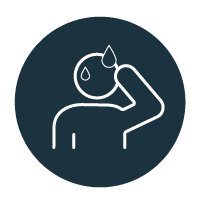NAD+ at Ketamine Wellness Centers
NAD+ therapy is an important new addition to our services at Ketamine Wellness Centers. This innovative treatment is offered at all KWC locations.
Schedule Your Appointment
What is NAD+?
NAD+ is one of the most important molecules in our bodies. It gives us energy, creates new cells, builds new pathways in the brain, and is a driving force behind our health. As we get older, however, we produce less and less of it—and our bodies notice.
Why KWC?
Delivery methods are vital to the effectiveness of NAD+, so treatment at KWC delivers the compound directly into your bloodstream via infusion. The result is complete absorption and optimal efficacy.
What makes NAD+ therapy at Ketamine Wellness Centers different? Our clinically controlled setting, expertise, and experience. As with all therapies offered at KWC, our program undergoes frequent quality assurance reviews and complies with the highest standards of care and all recommended guidelines.
Potential Benefits of NAD+
Improving Brain Function
NAD+ has been studied as a potential treatment for brain diseases including Alzheimer's and Parkinson's. Since NAD+ stimulates the brain and promotes cell health, it is believed that it may improve brain function and reduce symptoms of declining health. Research also suggests that NAD+ can reduce anxiety, improve memory, and boost learning.
Repairing DNA
One theory on why we age is that damage to DNA causes our bodies to become less efficient over time. In studies on patients suffering from declining brain health, NAD+ successfully repaired damage to DNA in brain cells. These repairs are not only associated with improved brain function, but could also lead to increased lifespan, slower aging, and overall physical health.
Increasing Energy
In some cases, tiredness and fatigue are related to low levels of NAD+. It is believed that NAD+ may be an effective therapy for those who suffer from low energy. In studies on Chronic Fatigue Syndrome, this treatment has been found to dramatically reduce fatigue and boost energy.

Staying Sober
NAD+ has also been used to treat long-lasting symptoms of addiction and substance abuse, including depression, cravings, and stress. It continues to attract interest as a possible treatment for these symptoms of Post-Acute Withdrawal Syndrome (PAWS).
Improving Cell Communication
NAD+ is crucial to helping cells communicate with each other. This takes many different forms: NAD+ is responsible for sending signals to activate the metabolism, transporting energy to different cells, and building new pathways in the brain. NAD+ is especially important for cells in the brain: it promotes forming new habits, learning new skills, and preventing brain conditions like Alzheimer's.
Boosting Immunity
When we run low on NAD+, the immune system is affected. This makes us more vulnerable to frequent illnesses, infections, and fatigue. NAD+ appears to support immune health by reducing inflammation. Many health conditions (including asthma, arthritis, and even stress) can cause long-term inflammation, potentially leading to health complications including tumor growth, heart disease, and organ damage. This treatment won't cure immune diseases, but it may control inflammation and reduce the likelihood of developing other serious illnesses.
What are the side effects of NAD+?
This treatment is viewed as a safe and effective therapy. When this treatment is dosed and monitored by a medical professional in a clinically controlled setting, the risk to the patient is extremely low.
Schedule Your Appointment
- Santaella ML, Font I, Disdier OM. Comparison of oral nicotinamide adenine dinucleotide (NADH) versus conventional therapy for chronic fatigue syndrome. P R Health Sci J. 2004;23(2):89-93.
- Alegre J, Rosés JM, Javierre C, et al. [Nicotinamide adenine dinucleotide (NADH) in patients with chronic fatigue syndrome]. Revista Clinica Espanola. 2010 Jun;210(6):284-288. DOI: 10.1016/j.rce.2009.09.015. PMID: 20447621.
- Ying W. NAD+ and NADH in brain functions, brain diseases and brain aging. Front Biosci. 2007;12:1863-1888. Published 2007 Jan 1. doi:10.2741/2194
- Demarin V, Podobnik SS, Storga-Tomic D, Kay G. Treatment of Alzheimer’s disease with stabilized oral nicotinamide adenine dinucleotide: a randomized, double-blind study. Drugs Under Experimental and Clinical Research. 2004 ;30(1):27-33. PMID: 15134388.
- Birkmayer JG, Vrecko C, Volc D, Birkmayer W. Nicotinamide adenine dinucleotide (NADH) — a new therapeutic approach to parkinson’s disease. Acta Neurologica Scandinavica. 1993;87(S146):32-35. doi:10.1111/j.1600-0404.1993.tb00018.x
- Fang EF, Kassahun H, Croteau DL, et al. NAD + replenishment improves lifespan and Healthspan in ataxia telangiectasia models via mitophagy and DNA repair. Cell Metabolism. 2016;24(4):566-581. doi:10.1016/j.cmet.2016.09.004
- Lozoya OA, Martinez-Reyes I, Wang T, et al. Mitochondrial nicotinamide adenine dinucleotide reduced (NADH) oxidation links the tricarboxylic acid (TCA) cycle with methionine metabolism and nuclear DNA methylation. PLOS Biology. 2018;16(4). doi:10.1371/journal.pbio.2005707
- Navarro, M. N., Gómez de las Heras, M. M., & Mittelbrunn, M. (2022). Nicotinamide adenine dinucleotide metabolism in the immune response, autoimmunity and inflammageing. British Journal of Pharmacology, 179( 9), 1839– 1856. https://doi.org/10.1111/bph.15477
- Rajman L, Chwalek K, Sinclair DA. Therapeutic Potential of NAD-Boosting Molecules: The In Vivo Evidence. Cell Metab. 2018;27(3):529-547. doi:10.1016/j.cmet.2018.02.011
- Koch-Nolte F, Haag F, Guse AH, Lund F, Ziegler M. Emerging roles of NAD+ and its metabolites in cell signaling. Sci Signal. 2009;2(57):mr1. Published 2009 Feb 10. doi:10.1126/scisignal.257mr1



